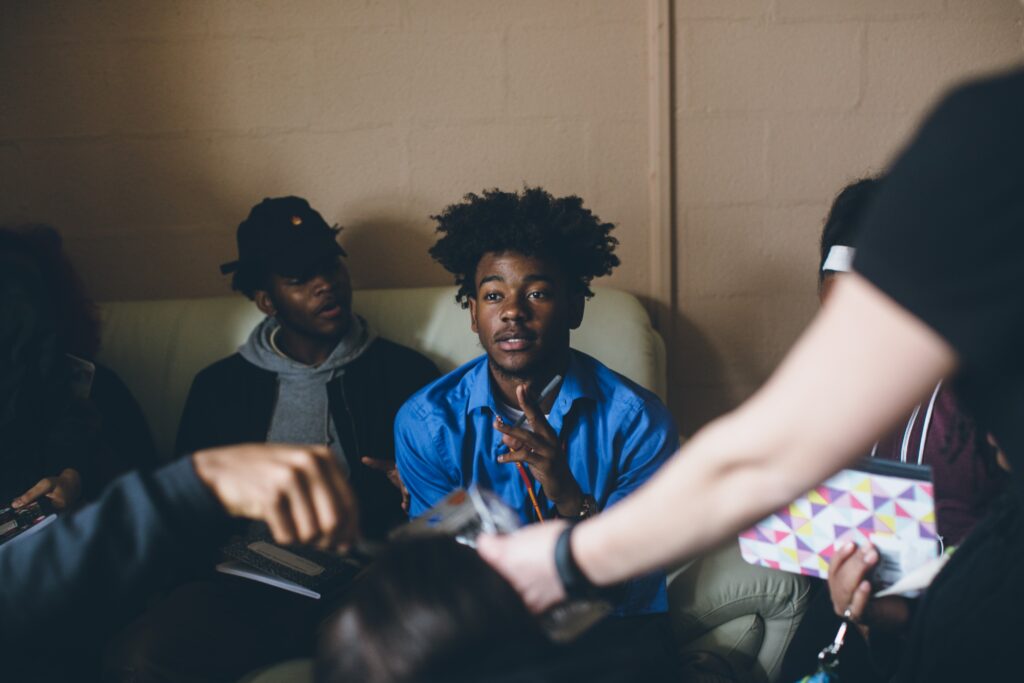While providing outlets for students to express their perspective through their voice is an amazing and creative opportunity for young people, it is not enough. As the Project Manager for Student Voice at Pittsburgh Public Schools, I have been charged with ensuring that our culture shifts to a student-centered organization. Through this work, we have created opportunities for student voice to be elevated, but youth desire more. The students of PPS desire to be active stakeholders in the decision-making system. They want to ensure that their direct input goes to board members, the Superintendent, Central Office Staff, Principals, and other school-based staff.
Empowering youth to raise their voices in a way that leads to meaningful leadership and the activation of youth power takes active effort by those that hold power to position the youth as key stakeholders within an organization. Giving young people real responsibility and authority takes a courageous culture shift, but it’s our best opportunity to give youth the tools and knowledge they need to be successful leaders.
There are three ways to ensure youth have meaningful leadership opportunities which truly activates youth power.
1. Listen
When you allow opportunities for voices to enter a space, it shifts your perspective. Taking the time to step back and ask youth “What do you think about the decisions that are being made? What would you like to see change in your community? How did that event impact you and your safety?”, their responses provide an honest and realistic perspective that we tend to miss. Invite youth to community meetings and create a forum where their voices are heard and respected.
You would be surprised what a feedback form will reveal. The first year I came into my role, members of the Superintendent’s Student Advisory Council were grouped with another student group for their training. We captured their feedback at the end using an evaluation form. The students provided feedback on how the training did not truly prepare them for the role they were about to assume. They were able to identify specific session topics and speakers for future trainings. Two years later, we now have a successful Summer Leadership Workshop with trainers from across the district. The feedback has been overwhelmingly positive.
2. Learn
Youth can offer best practices and strategies that our textbooks and leadership training experiences may miss. If you already opened an opportunity for student voices to be heard, applying their suggestions and feedback can start to transform a community, city, state, the system. Youth can provide a perspective that hasn’t been tarnished or jaded. Their feedback comes from their authentic and genuine experience of what we are offering them. Student leaders attended Beyond Diversity, the mandatory diversity training for PPS staff. Before the training, students were helping a new teacher with her lesson plans. The teacher was amazed by the new ideas for activities and delivering the content she received from the student leaders. She followed up a few weeks later elated about her elementary students’ response to her new lesson plans.
3. Co-lead
Partner! Give youth a seat at the table. Student voice is a priority at Pittsburgh Public Schools! This year, on the Superintendent’s Student Advisory Council, we will have up to 9 students from every high school in the district who will represent their school at the district level. There is school-based student voice and district-wide student voice. With an intensive weeklong leadership training and ongoing support, the students have an opportunity to shift school and district culture and instructional strategies to ensure that THEY are the ones benefiting from this system.
I would like to challenge you to find that space, that opportunity for student voice and cultivate it. How can students truly be engyouth aged in the work that you do and influence a greater community? For me, it started with evaluating the current opportunities for student voice. I went to the students and had simple conversations, gaging what they like and what they wish would change. I then began the conversation about their ideas for change and started to cultivate their ideas at Pittsburgh Public Schools. If you do not do anything else, just have a conversation. I promise, you will not regret it.
